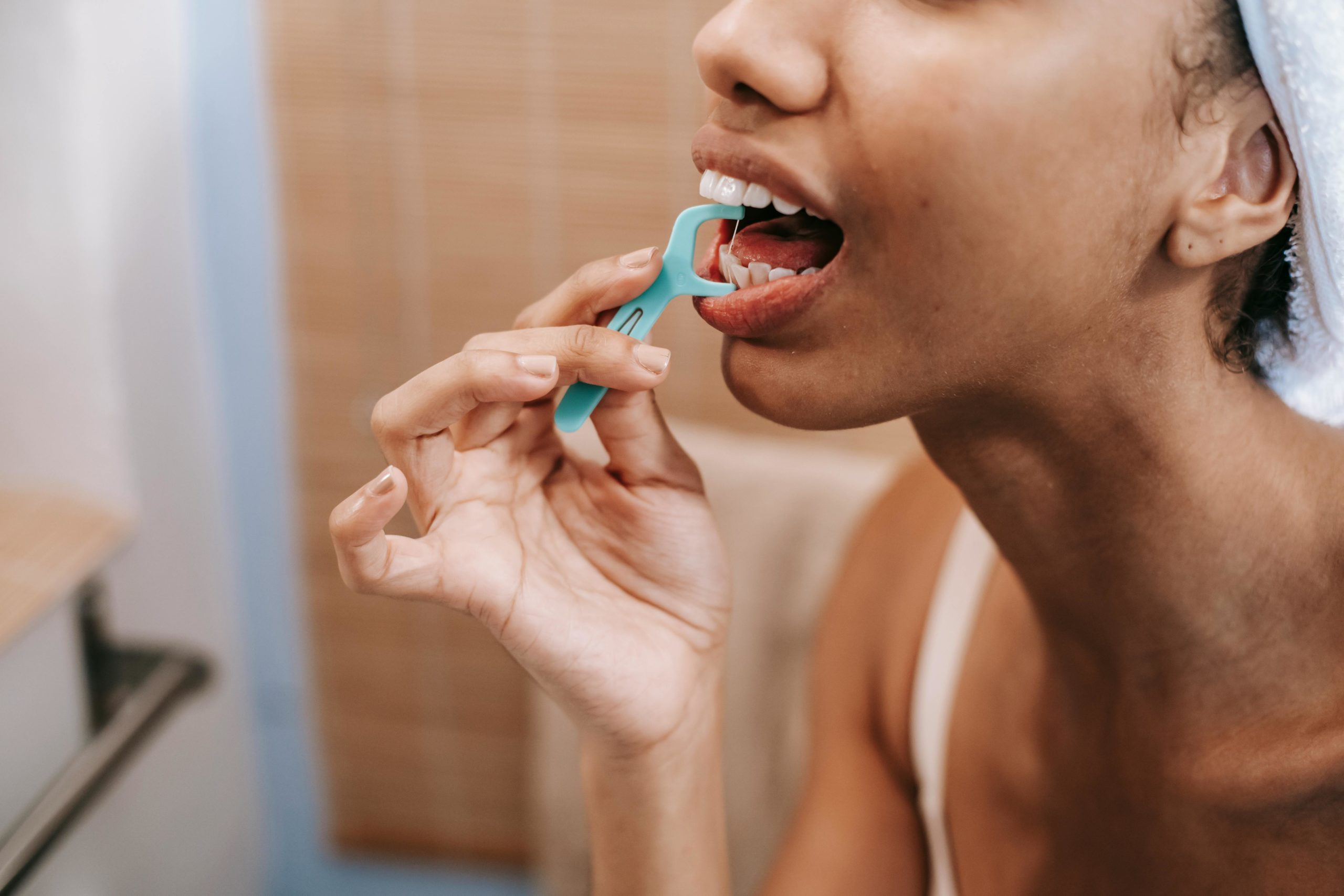We’ve all been there—the end of a long day, feeling tired and ready to crawl into bed, only to remember that we still haven’t flossed. It’s tempting to skip this seemingly small step in our oral hygiene routine, but the truth is that flossing plays a vital role in maintaining healthy teeth and gums. While brushing may seem like enough, flossing reaches the areas between teeth and along the gumline that a toothbrush can’t reach.
In this comprehensive guide, we’ll explore the importance of flossing daily and why it’s essential for achieving optimal oral health.
Benefits of Flossing Daily
1. Prevents Gum Disease
One of the primary benefits of daily flossing is its ability to prevent gum disease. When plaque—a sticky film of bacteria—builds up along the gum line and between teeth, it can lead to inflammation and infection of the gums, known as gingivitis.
If left untreated, gingivitis can progress to more severe forms of gum disease, such as periodontitis, which can result in tooth loss. By removing plaque and debris from these hard-to-reach areas, flossing helps to prevent the development of gum disease and maintain healthy gums.
2. Reduces Risk of Cavities
In addition to preventing gum disease, flossing daily can also help reduce the risk of cavities. When plaque accumulates between teeth, it provides an ideal environment for cavity-causing bacteria to thrive. Over time, these bacteria produce acids that erode tooth enamel, leading to the formation of cavities.
By removing plaque and food particles from between teeth, flossing helps to disrupt the growth of bacteria and prevent the onset of cavities. Using flossing into your daily oral hygiene routine can significantly decrease your risk of developing tooth decay.
3. Promotes Fresh Breath
Another benefit of daily flossing is its ability to promote fresh breath. When food particles and bacteria accumulate between teeth, they can produce foul-smelling odors that contribute to bad breath. By flossing regularly, you can remove these odor-causing substances and leave your mouth feeling clean and refreshed.
In addition to brushing your teeth and tongue, incorporating flossing into your daily routine is essential for maintaining fresh breath and preventing embarrassing odors.
4. Enhances Overall Oral Health
Overall, daily flossing plays a crucial role in enhancing your overall oral health. By removing plaque, bacteria, and food particles from between teeth and along the gumline, flossing helps to prevent gum disease, cavities, and bad breath. It also promotes healthy gums, reduces inflammation, and contributes to a brighter, more confident smile.
While brushing is essential for cleaning the surfaces of teeth, flossing completes the oral hygiene routine by reaching areas that a toothbrush can’t access, ensuring a thorough clean and optimal oral health.
5. Saves Money on Dental Care
In addition to its health benefits, daily flossing can also save you money on dental care in the long run. Preventative measures such as flossing help to avoid costly dental procedures such as fillings, root canals, and gum treatments that may be necessary to address issues caused by poor oral hygiene. By investing a few minutes each day in flossing, you can significantly reduce your risk of developing dental problems and the associated expenses of treatment.
Conclusion
Daily flossing is a simple yet crucial component of a comprehensive oral hygiene routine. By removing plaque, bacteria, and food particles from between teeth and along the gumline, flossing helps to prevent gum disease, cavities, and bad breath. It also promotes healthy gums, enhances overall oral health, and can save you money on dental care in the long run. While brushing is essential, flossing completes the oral hygiene routine by reaching areas that a toothbrush can’t access, ensuring a thorough clean and a bright, confident smile.
Frequently Asked Questions (FAQs)
1. How often should I floss?
Ideally, you should floss once a day, preferably before bedtime. Flossing at night removes plaque and debris that have accumulated throughout the day, ensuring a clean mouth before you go to sleep. However, if you’re unable to floss at night, aim to floss at least once a day at a time that fits into your schedule.
2. What is the best technique for flossing?
To floss effectively, use a piece of floss about 18 inches long and wrap it around your middle fingers, leaving a few inches of floss between them. Gently guide the floss between teeth using a back-and-forth motion, making sure to curve it around the base of each tooth and slide it under the gumline. Be careful not to snap the floss or force it into the gums, as this can cause irritation or injury.
3. Are there alternatives to traditional floss for cleaning between teeth?
Yes, there are alternatives to traditional floss for cleaning between teeth, such as dental picks, interdental brushes, and water flossers. These tools can be especially helpful for individuals with dexterity issues or braces, as they provide alternative methods for removing plaque and debris from between teeth and along the gumline. However, it’s essential to use these tools correctly and consult with your dentist or dental hygienist to determine the best option for your individual needs.
4. Can flossing make my gums bleed?
It’s not uncommon for gums to bleed when you first start flossing, especially if you haven’t been flossing regularly. Bleeding gums may indicate the presence of gum disease or inflammation caused by plaque and bacteria. However, as you continue to floss regularly, your gums should become healthier, and bleeding should decrease. If bleeding persists or worsens, consult with your dentist or dental hygienist for further evaluation and guidance.
5. Is flossing necessary if I brush my teeth thoroughly?
Yes, flossing is necessary even if you brush your teeth thoroughly. While brushing is essential for cleaning the surfaces of teeth, it doesn’t reach the areas between teeth and along the gumline where plaque and bacteria accumulate. Flossing complements brushing by removing debris from these hard-to-reach areas, ensuring thorough clean, and optimal oral health.



